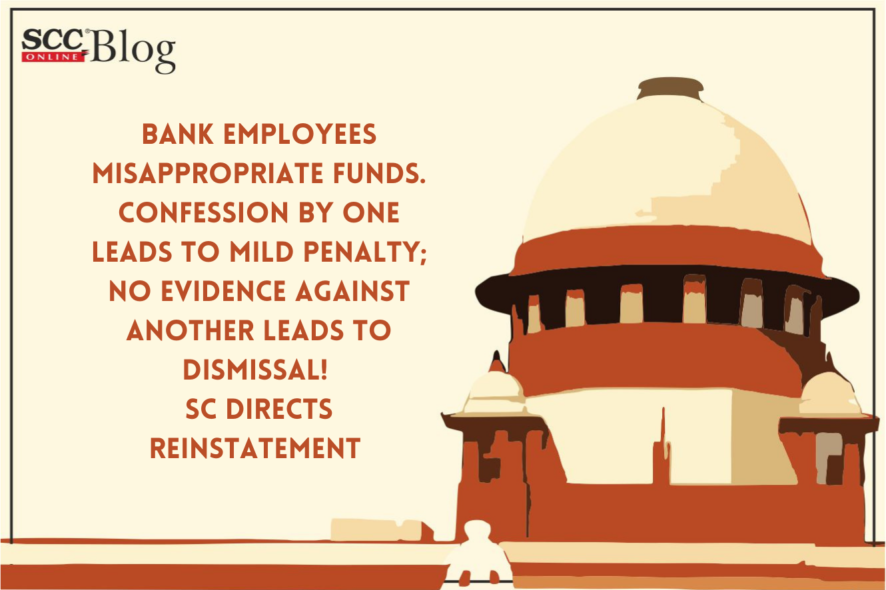Supreme Court: In a case where a bank employee was dismissed from services despite lack of evidence, the bench of KM Joseph and S. Ravindra Bhat*, JJ has directed his reinstatement and has held that even in departmental proceedings, there had to be some overt evidence, and not mere suspicion, to support a valid finding of complicity of the employee.
In the case at hand, it was alleged that the respondent had disbursed loan in favour of twelve fictitious persons in connection with the Integrated Rural Development Project and had misappropriated the amount of ₹ 60,000/- forming the subsidy component, (of the total ₹ 1,20,000/- disbursed to the beneficiaries).
Interestingly, his colleague who confessed to the misconduct, was charged and proceeded with departmentally. The confession of guilt, which he owned up to, nevertheless resulted in a mild penalty of withholding of increments. However, the respondent, who did not admit his guilt, or confess to it, and in respect of whom there was no credible evidence, even going by the lower standards of acceptable proof in departmental inquires, was held to be guilty and visited with the penalty of dismissal.
The supreme Court noticed that
“A reading of the disciplinary authority’s order reveals that his past record of minor misconduct played a major role in determining his guilt, despite lack of evidence, and the extreme penalty of dismissal.”
The Court observed that in the present case, the confessional statement was not by the respondent. Hence, best then, that document bound the authors, not third parties, like the respondent.
“The enquiry officer clearly erred by relying on such extraneous matters, as the respondent could not be made a scapegoat for the confession of others, especially with regard to his role. The bank’s charge about his complicity had to be proved by evidence. This document, containing others’ confession, could not have been used against him.”
The Court hence directed the Bank to reinstate the respondent, and calculate all his benefits, including arrears of salary, pay increase (as applicable), increments, and all consequential benefits, and calculate his terminal benefits, and fix his pension, if admissible to him under the bank’s regulations. The determination of these benefits shall be undertaken, and the payment of all amounts be made, within three months.
[United Bank of India v. Biswanath Bhattacharjee, 2022 SCC OnLine SC 108, decided on 31.01.2022]
*Judgment by: Justice S. Ravindra Bhat
Counsels
For respondent: Advocate Kunal Chatterji






